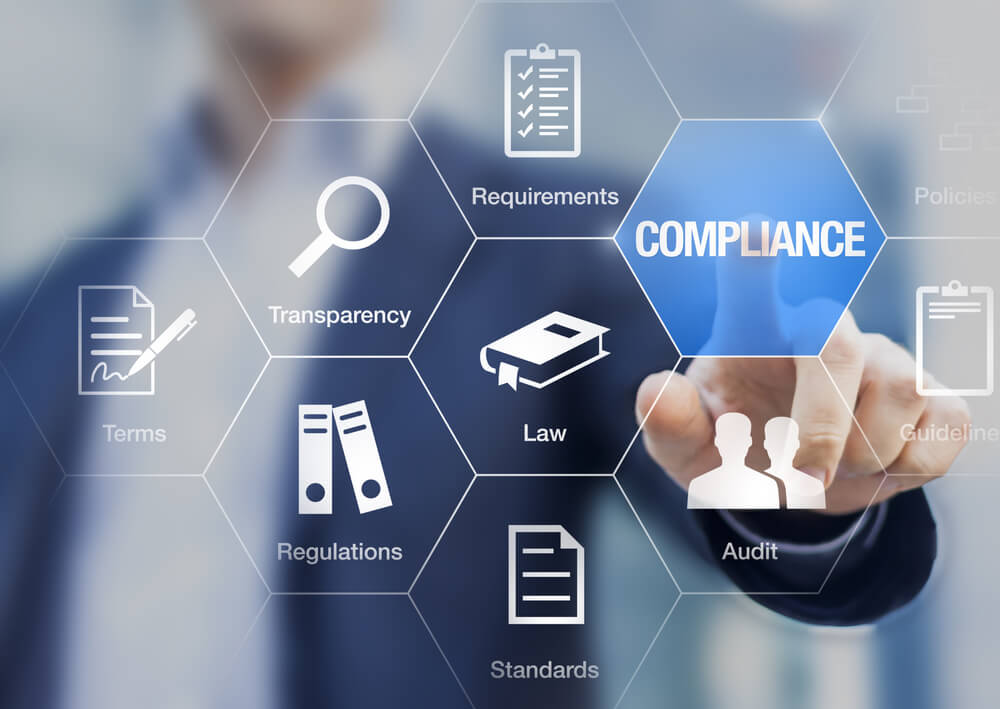Business Litigation in Context
When running a business, one cannot overlook the looming specter of business litigation. It is a pervasive concern that demands the utmost attention from corporate officers and the board of directors. This article delves into the pivotal role played by corporate officers and the board of directors in ensuring corporate compliance and averting the perils of business litigation.
What is corporate compliance?
Corporate compliance refers to the adherence and conformity of corporate officers and the board of directors to laws, regulations, guidelines, and standards governing corporate governance and operations. It encompasses various legal and ethical obligations that corporate leaders must fulfill to ensure lawful and responsible business conduct.
The Role of Corporate Officers and Board of Directors
Corporate officers, including executives and managers, play a pivotal role in promoting and maintaining corporate compliance. They are responsible for implementing and overseeing effective compliance programs within the organization. The board of directors, as the governing body, holds the ultimate responsibility for overseeing compliance efforts and ensuring the organization’s adherence to applicable laws and regulations.
Key Considerations for Corporate Compliance
- Understanding Legal and Regulatory Frameworks: Corporate officers and the board of directors must have a comprehensive understanding of the legal and regulatory frameworks relevant to their industry and business operations. This includes familiarizing themselves with consumer protection laws, labor regulations, environmental regulations, securities laws, and other applicable statutes that impact the organization’s activities.
- Developing Compliance Policies and Procedures: To promote corporate compliance, it is essential to establish clear policies and procedures that outline the organization’s commitment to legal and ethical conduct. These policies should address key compliance areas, such as anti-corruption, data privacy, workplace safety, and fair competition. Corporate officers and the board of directors should actively participate in the development and review of these policies to ensure they align with legal requirements and industry best practices.
- Implementing Effective Compliance Programs: Corporate officers and the board of directors should implement effective compliance programs designed to prevent, detect, and address violations of laws and regulations. This includes conducting regular risk assessments, providing training and education to employees on compliance matters, establishing mechanisms for reporting potential violations, and conducting internal audits to assess compliance effectiveness.
- Monitoring and Auditing Compliance: Continuous monitoring and auditing are crucial to evaluate the effectiveness of compliance efforts and identify areas for improvement. Corporate officers and the board of directors should establish monitoring mechanisms, such as periodic compliance reviews and internal audits, to assess the organization’s adherence to legal requirements and promptly address any identified issues.
- Seeking Legal Counsel: Given the complex and ever-evolving corporate laws and regulations, it is advisable for corporate officers and the board of directors to seek legal counsel from experienced attorneys specializing in corporate compliance. Legal advisors can provide guidance on regulatory changes, assist in drafting compliance policies, and offer advice on managing legal risks.
It is important to note that corporate compliance is a fundamental responsibility of corporate officers and the board of directors who should be committed in upholding legal and ethical standards by implementing effective compliance programs, and seeking legal guidance when necessary. By adhering to these principles, businesses can operate with integrity and minimize the risk of business litigation to ensure long-term success and sustainability.
Discover the leading Los Angeles Business Litigation Law Firm
Reserve Rights Attorneys, PC is a team of business litigation attorneys, equipped to keep businesses informed on crucial regulations and dedicated to provide prompt guidance for compliance. As the leading firm in the industry, Reserve Rights Attorneys, PC offers invaluable insights into legal risks to help businesses identify and mitigate areas vulnerable to lawsuits and regulatory penalties.
Reserve Rights Attorneys, PC does more! Our Legal Services include:
- Business Debt Collection
- Corporate and Business Litigation
- Contract Litigation
- Fraud Litigation
- Social Media and Creators Representation
- Cryptocurrency and Fraud Litigation
- Construction and Contractor Litigation





